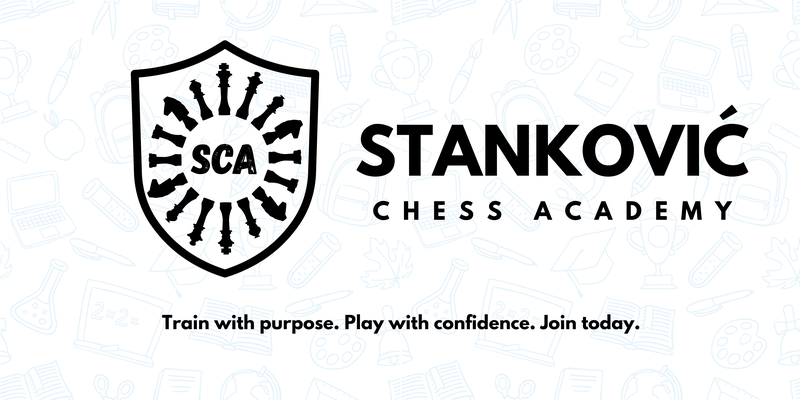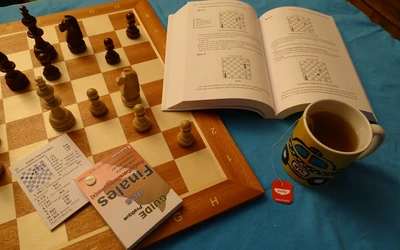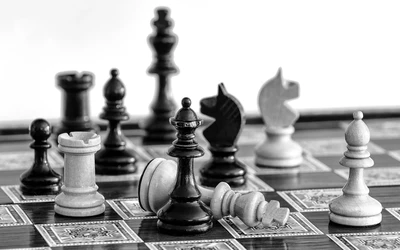
Antoine Dautry
Sharpen Your Mind Before You Move
The simple daily habit that separates creative players from consistent winners.Hello everyone!
In today’s blog, we’ll talk about one of the most essential aspects of every chess player’s training routine. Depending on your level, you may need to dedicate more or less time to it, but calculation must be on your daily to-do list, whether you’re a casual enthusiast or part of the chess elite.
Why do I consider this so crucial?
My students are asked to devote at least 30 minutes a day to tactical exercises. The reason is simple: in modern chess, results are what matter most. Brilliance leads to masterpieces, but consistency leads to results - and in chess, mistakes are more costly than in almost any other sport.
Conclusion: Mistakes must be reduced to an absolute minimum.
So, how does tactical training help us achieve that?
When you solve a large number of problems, you gradually develop an intuitive sense for when a tactical opportunity exists in a position. You begin to recognize the right moment to strike with a tactical blow or combination, and you also cultivate a sense of danger - when to be alert for your opponent’s threats and take prophylactic measures.
If someone could whisper during your game, “Hey, there’s a tactic here!”, you’d probably find it easily. Unfortunately, no one is allowed to give you such hints. That means you have to build that sense of timing yourself.
How to Train Your Calculation
To begin with, I recommend training by motifs.
Start simple: mates in one or two moves, and short forcing sequences that lead to checkmate. Then move on to basic tactical themes that yield material advantage: forks, pins, skewers, discovered attacks, etc.
Once that foundation is solid, proceed to more complex ideas: deflection, removing the defender, back-rank weaknesses, clearance sacrifices, and so on.
At a higher level, you should work on randomly selected positions, finding the best move and calculating all relevant continuations that follow.
A Crucial Note
As in life, in chess too, technical tools should be used wisely.
If you’ve solved a position correctly, the engine will confirm it, that’s fine. You can double-check whether your calculation was precise until the very end of the line.
But the real learning happens when you make a mistake.
Instead of getting frustrated and rushing to the next puzzle with an angry left-click, bring in your silicon friend.
Check what the correct move was, was it perhaps one of the candidate moves you initially considered but rejected? And most importantly, understand why your solution was wrong.
That’s where genuine improvement begins. You gain new insights, refine your calculation habits, and extract maximum value from every exercise.
As I often say: beginners should start with the simplest tactical motifs, while advanced players can sharpen their skills by solving studies or complex middlegame positions.
To conclude, I’ll share with you one such position - a problem my coach once gave me many years ago...
What Can We Learn from This Example?
Even though the tactical motifs were quite obvious, with attacking moves and sacrifices suggesting themselves almost automatically - it was precise calculation that led to the correct move order and the most efficient execution of the attack.
Had we relied purely on intuition, thinking that “any move order works,” Black would have found a defense and emerged with a decisive material advantage.
The consequences: a loss instead of a win, rating points slipping away instead of being gained, frustration, and a blow to one’s confidence...
The Practical Perspective
Consistent daily training improves both calculation speed and tactical awareness.
As a natural consequence, this also accelerates decision-making in strategic positions, since a player learns to rule out inferior options much faster.

Hello, everyone!
As I begin this exciting journey of blogging about chess, I’d appreciate your feedback on my posts. Your encouragement and constructive criticism mean a lot and help me grow as both a writer. My goal is to create content that inspires, educates, and connects with chess enthusiasts of all levels.
If you’re interested in improving your own chess skills, I also offer personalized coaching sessions! You can find more details on my profile.
Thank you for reading, and I wish you great success and joy in your own chess adventures
You may also like
 IM Neimar24
IM Neimar24Matthias Bluebaum - The Dark Horse!
In this blog, we will talk about Matthias Bluebaum. IM Neimar24
IM Neimar24A classic — an indispensable step!
In today’s blog, we’ll take a look at the game Spassky – Fischer. IM Neimar24
IM Neimar24